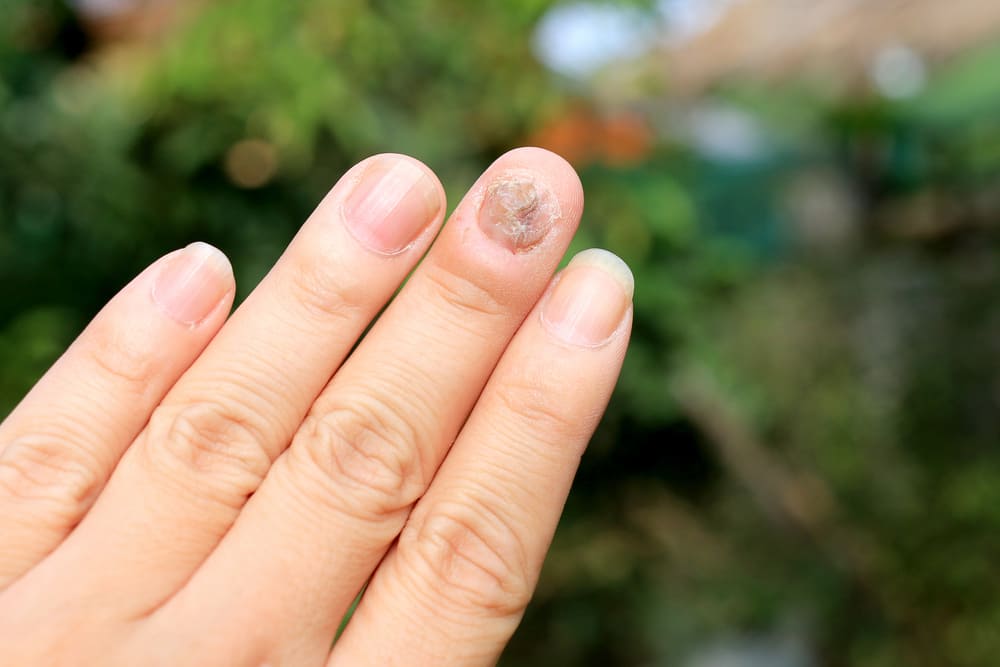Contents:
Medical Video: How to Take Care of a Pregnant Cat || Pet Care Tips
If you are planning to become pregnant, you may often hear people say that keeping a cat makes it barren. Or if you are pregnant, it may not be once in a while you hear people say that having a cat going back and forth at home will affect your baby's pregnancy and health later.
A healthy and smooth pregnancy is certainly the dream of every woman, including you. But on the other hand, you also don't have the heart to eject the sweetheart out of the house. After all, your pet cat is part of the family. Pets give you so much love and happiness like your own child.
Don't worry, you can now sit quietly while holding your favorite cat. It's okay to keep cats hanging around the house while you're planning a pregnancy or are pregnant. But you must be extra careful when cleaning the cage and the cat's pup box. Not because your cat is dangerous, but a single-celled parasite called Toxoplasma that can be carried by cats.
What is the effect if pregnant women contract toxoplasma?
Cat feces can contain infectious parasites called toxoplasma. Toxoplasmosis is usually not a problem for most people. The symptoms are similar to the common cold. Toxo-infected individuals may experience mild fever, cough, headache, fatigue, and swollen neck glands. If you contract toxoplasma while you are pregnant, or even a few months before you become pregnant, this parasite can cause serious birth defects such as damage to the eyes and brain in the fetus. About half of babies infected with toxo are born prematurely.
Other damage can occur weeks, months or years after birth, including liver and spleen damage, deafness or hearing loss, jaundice, eye damage and vision problems, diarrhea, vomiting, eating problems, and skin rashes. There is also a possible relationship between toxo infection and infertility, and also miscarriage, in women who are planning a pregnancy.
You may be infected with toxo when handling cat litter and not immediately wash your hands, then swallow a trace of the virus when touching food, but this possibility is very small. The risk of contracting toxoplasma during pregnancy is low. If you have kept cats at home for a long time, it is very likely that you have had toxo before - this is a good sign! Once infected, the body will automatically build antibodies to protect itself from recurrent infections. So after you get toxo (which you may not have noticed before), you cannot be re-infected. If laboratory tests prove that you already have toxo antibodies, it is almost impossible to expose during and before pregnancy will cause a bad health impact on your prospective baby.
Why is it less likely to catch toxo from your pet cat?
Cats, like humans, can only catch toxins once. Therefore, your sweetie spreads parasites only once during your care. Cats get toxoplasmic parasites from eating mice or birds infected with toxo, or if they eat raw meat for their daily food. After approximately 3-10 days, cats will be susceptible to spreading parasites embedded in their feces for two weeks. But, the parasite is not contagious as soon as your cat pups. It takes one to five days for cat feces to become very contagious. Of course this is assuming that your cat has contracted toxo for the first time when you are planning / during pregnancy.
Relax. You cannot get toxo directly from your cat. The risk of direct transmission of this cat will increase if it is assumed that you have never contracted toxo before, for example, just keeping a cat very close to planning your pregnancy, or you leave the cat's cage or your house stranded for more than one day . This also assumes that you clean your cat's pup box directly with the tongue or scoop the pup empty-handed. After that, mix the sandwich for lunch without washing hands.
But still, according to the Center for Disease Control of toxo is the main cause of death from food poisoning. These parasites are transmitted by mouth, so touching the mouth with contaminated hands can cause infection. Even if you don't have a cat, you can still be exposed to toxo from handling or eating raw meat, or not washing your hands before eating after touching toxo-infected soil. This organism is mainly found in pork, beef, mutton. Toxo is also found in birds and mice.
How to prevent transmission of toxoplasma from raising cats
The possibility of contracting toxoplasma during pregnancy is low. And if you have a cat, the chances are even higher that you have contracted the disease, and this will build up the body's immunity to the parasite. Your prospective baby may not be at any risk.
But if you have never been exposed to toxo or if you are unsure, it is very important to protect yourself from now on. If the parasite crosses the placenta in the first trimester of pregnancy (especially in the second month), toxo can greatly damage the fetus. Problems can range from premature birth or low birth weight, serious central nervous system defects, and even stillbirths. Don't let this information haunt you. Use this as a way to protect both of you.
Be a wise prospective mother and follow these steps:
- If your cat is not infected, it's okay to keep it left at home: Don't let them eat raw meat and keep them at home as often as possible (where they can't eat mice or birds that might be infected and don't socialize with wild cats that might be infected).
- Get away from your cat's pup box! Cages and pup boxes must be cleaned every day, but ask someone else to do it.
- Far from wild cats and don't hold cats that aren't familiar with you
- Avoid gardening on the ground which may be contaminated with cat feces. Always use gardening special gloves.
- Wash fruits and vegetables thoroughly (land where vegetables and fruit fall during harvest may be contaminated).
- Don't eat raw or undercooked meat. Cook all meat thoroughly. Raw, undercooked, or preserved meat are the main risk factors for Toxoplasma infection.
- Practice good personal hygiene. Always wash hands after holding animal or human feces, before and after preparing food, and before and after gardening
These precautions are effective enough to prevent you from contracting Toxoplasma, even if you have an infected cat. However, if you are still worried that you might have been exposed to toxoplasmosis, consult your doctor for a blood test to find out if you are immune to this disease. In addition, also bring your cat to the veterinarian for a test if he has been infected with toxoplasmosis.
If your cat has a positive toxoplasmosis parasite, you can decide to put him in animal care or leave them to live temporarily with another person for six weeks until he is no longer contagious.
READ ALSO:
- Back Headache? Know What Causes
- How to plan a pregnancy after birth control pills?
- Making Love Too Much Makes Pregnant Difficulties, Myths Or Facts?












